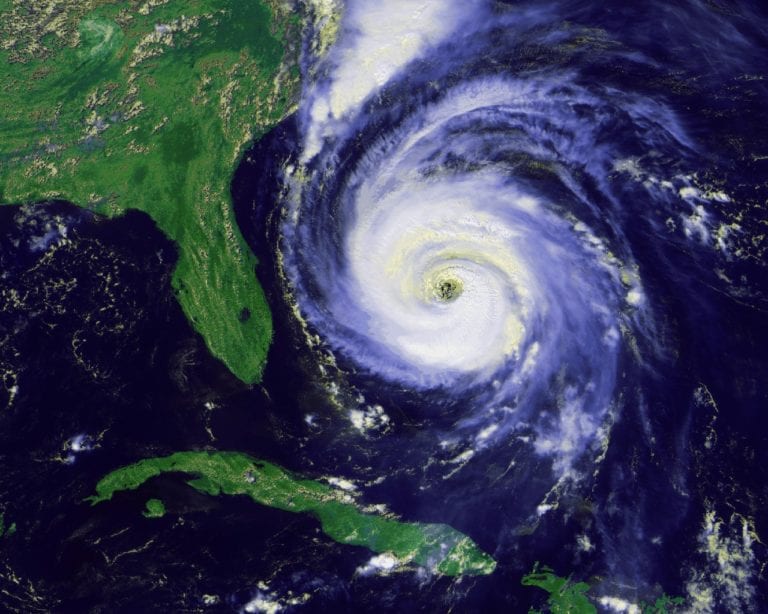Other property owners see rates increase ahead of hurricane season.
Mark Harper Daytona Beach News-Journal USA TODAY NETWORK
This month three carriers of homeowners’ insurance informed state regulators they will be dropping more than 53,000 policies just as hurricane season is arriving.
Some Volusia County insurance agents say they’ve been busy – not unlike accountants during tax season – working with customers to find new insurers willing to carry them, while other property owners are seeing significant rate increases. And it’s likely to get worse later in 2021.
The companies that have filed mass non-renewal notices with the Florida Office of Insurance Regulation are:
h Gulfstream Property & Casualty Insurance Co., which is dropping 20,311 of its 56,000 Florida customers. The filing stated the company had a $20 million surplus as of Dec. 31, which was down $5.2 million from the previous year. “Without action” the Gulfstream filing states, “the company’s financial condition will deteriorate to an unsustainable level by mid-2021.”
h Southern Fidelity Insurance Co., which is non-renewing 19,600 policies over the next 14 months, citing “several factors … generating significant losses.”
h Universal Insurance Co. of North America, which is shedding 13,294 of its 56,000 Florida policies after losing $26.6 million in 2019 and 2020, and seeing its surplus drop by $9 million last year.
Gulfstream and Universal are surprising some customers with midterm cancellations, considered by industry
insiders as unusual.
“This is just the beginning. We will see other insurers going before the regulators over this for similar actions,” said Mark Friedlander, director of corporate communications at the Insurance Information Institute, an industry research organization.
Kyle Ulrich, president and CEO of the Florida Association of Insurance Agents, said the property insurance industry lost about $1.7 billion in Florida in 2020.
“That’s the kind of loss no industry can survive,” Ulrich said.
That it’s happening after two years without any direct hurricane hits to Florida speaks to two different problems property insurers are facing: Fraudulent roofing claims and lawsuits.
Friedlander, who works remotely from St. Augustine and keeps close tabs on Florida, said his organization, the Triple-I, analyzed property-claim lawsuits in 2019 and found 76% of those filed nationwide were in Florida. The Sunshine State accounts for just 8% of all U.S. property claims.
“Clearly, there’s a major problem here,” Friedlander said.
Less competition, higher rates for policies
Florida is the most expensive state for homeowners’ insurance, Friedlander said.
Residents are projected to pay an average of $2,380 in premiums this year, a 21% increase over the 2018 average, $1,960, he said.
By contrast, the average U.S. homeowner is expected to pay $1,297, which is up 4% from 2018.
Jeff Whyte, owner of WFG Insurance, an independent agency in New Smyrna Beach, said new Florida clients are experiencing a market with fewer competitors, as other companies are limiting business to newer construction homes and in lower-risk geographic areas.
“It is very important the consumer knows the individuals are not getting singled out unless they have an excessive claim history,” Whyte said. “More than likely, (insurance companies) pick several homes in one geographical area. It’s nothing personal.”
Veteran agents say the situation is unprecedented.
“In all the years I have been doing this, I’ve never seen anything like this market,” said Becky Geisler of Volusia Insurance of Port Orange.
“It’s not just one insurance company. We are getting requests from clients being non-renewed by many different carriers,” she said.
While some companies are dropping policies, customers are usually able to find replacements, “but at much higher costs.” A policy that cost $900 might be replaced by one for $2,500, Geisler said.
Autumn Scarsella, an agent with The Smith Agency, New Smyrna Beach, said her firm doesn’t work with any of the companies that are non-renewing Florida policies, but she is getting calls from new customers searching for an alternative carrier.
Beyond those being non-renewed, some homeowners are experiencing higher rates and difficulty getting specific types of insurance, such as wind.
“I’ve seen the market tighten up as far as the carriers not writing everything,” Scarsella said. “Some insurance companies won’t write homes older than 2000 or 2010.”
Agents also report seeing companies unwilling to write new policies for homes valued at less than $300,000, or those homes with older roofs, air-conditioning, hot-water heaters and electrical control boxes.
Citizens’ growing insurancmarket share
When agents can’t otherwise find a policy for homeowners, they turn to the state-run insurer of last resort, Citizens Property Insurance Corp.
After reaching a high-water mark with 1.4 million properties in 2011, Citizens had been reducing its market share, Friedlander said, but that’s changed since January 2020. Since then, Citizens’ policy count has grown 35%, from 443,000 to 600,000.
The trend is expected to continue, with analysts projecting growth to 750,000 policyholders by the end of 2021. That would likely push it past the largest the property insurer in Florida, Universal Property and Casualty Insurance Co., which had 714,000 policies in September 2020.
Ulrich of FAIA said it’s essential for Citizens to be available to homeowners who face true disasters, but a healthy, competitive private market would be preferable.
“The downside of (Citizens) is while their claim will be paid, Citizens doesn’t provide nearly as robust coverage,” he said. “People shouldn’t go without certain types of coverages and limits they need. It’s a really unfortunate situation.”
Advocates blame lawyers
The situation has led to calls for change in state insurance laws.
“Florida is the No. 1 litigation state when it comes to property insurance,” said David Santiago, a former state representative from Deltona and insurance agent who is now executive director of Floridians for Lawsuit Reform, a social welfare nonprofit funded in part by the insurance industry.
In some cases, contractors were going door-todoor promising to get homeowners a “free roof,” by filing claims against insurance companies, and when they’re denied, they sue, Santiago said.
Legislation aimed at halting that stopped thirdparty lawsuits against insurance companies has been effective, FAIA’s Ulrich said.
“Unfortunately, what has happened is many of those third-party lawsuits have transitioned to first-person lawsuits,” Ulrich said. “Lawyers have gone now directly to the homeowners and in many cases, they have a partner, so to speak, a roofer or a contractor or a water mitigation company that is really nothing more than a runner for the law firm that goes door-to-door and says, ‘We’ve gotten free roofs for your neighbors.’” Those kinds of claims are being made in years without hurricanes and in counties, such as those in Central Florida that property-insurance companies used to consider less risky than the coastal counties, Ulrich said.
Santiago said Florida’s system is “out of whack,” and in need of reform.
“The way our laws are structured, it’s a fruitful marketplace for trial lawyers and less-than-scrupulous contractors,” Santiago said. “We are definitely an outlier, and Floridians are paying the price for it.”


